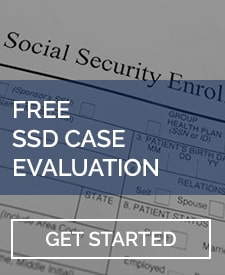Unlocking the Path to Support and Compensation for Individuals with Adult ADHD
Living with adult ADHD brings forth a unique set of challenges that can permeate every facet of your life, from the workplace to personal relationships. If you find yourself grappling with the symptoms of ADHD, which hinder your ability to maintain gainful employment, there’s a vital lifeline you should be aware of – Social Security Disability benefits. In this comprehensive guide, we delve deep into the intricate process of qualifying for disability benefits for adult ADHD. Our goal is to equip you with the knowledge, insights, and strategies you need to secure the vital support and compensation you deserve.
Unveiling the Complexity of Adult ADHD

Breaking Misconceptions: The Profound Impact of Adult ADHD
While ADHD is commonly associated with hyperactive behaviors in children, its impact on adults is far-reaching and multifaceted. Dispelling myths, it’s essential to understand that Attention-Deficit/Hyperactivity Disorder (ADHD) is not merely a behavioral issue; it’s a legitimate medical condition stemming from neurological factors that affect executive functions. These functions encompass vital skills such as attention, memory, impulse control, and social aptitude. Recognizing ADHD as a genuine neurological disorder is pivotal in seeking the necessary support and understanding.
Understanding the Range of Challenges
The Vast Spectrum of Adult ADHD Symptoms
The effects of adult ADHD encompass far more than meets the eye. Beyond the commonly known symptoms, such as impulsivity and hyperactivity, there’s a spectrum of challenges that individuals with ADHD face. From chronic tardiness and chronic boredom to anxiety, mood swings, and difficulties in relationships, these symptoms can drastically hinder daily life. While some individuals may manage mild symptoms with tools, medications, or coping strategies, others find themselves facing an uphill battle that prevents them from engaging in productive work due to the complex nature of their neurological condition.
Beyond ADHD: The Complex Complications
Living with adult ADHD often comes hand in hand with a variety of complications that extend beyond the disorder itself. Statistics reveal that individuals with ADHD are at a higher risk of being involved in serious car accidents and are three times more likely to die by the age of 45. Furthermore, they are more susceptible to anxiety disorders, with approximately 50 percent of adults with ADHD also dealing with anxiety-related challenges. This interplay of factors creates a web of difficulties that can significantly impact an individual’s ability to engage in “gainful work activity” – the capacity to earn a living, support oneself, and maintain a functional family life.
Seeking Support: SSDI for Adults with ADHD
Navigating the Social Security Safety Net
Amidst the complexities, there exists a beacon of hope – Social Security Disability Insurance (SSDI). However, gaining approval for disability benefits is a meticulous and often intricate process that requires a deep understanding of the eligibility criteria and the documentation necessary to substantiate your claim. It’s important to note that until recently, ADHD as a disability was primarily recognized in children. However, the landscape shifted in 2016 when the Social Security Administration (SSA) introduced new listing categories that include neurodevelopmental disorders in adults, encompassing ADHD.
Demystifying SSDI Eligibility for ADHD
Accessing SSDI benefits for adult ADHD necessitates a thorough understanding of the eligibility criteria and the evidence required to establish your case. To qualify, it’s crucial to demonstrate that your condition renders you unable to participate in gainful work activity (Top 3 Conditions that Qualify for Social Security Disability Benefits). This involves showcasing either frequent distractibility, organizational challenges, or hyperactive/impulsive behavior. Additionally, highlighting significant limitations in learning, interaction, concentration, and self-management plays a pivotal role in the approval process.
Partnering with a Proficient Disability Attorney
Leveraging Legal Expertise for SSDI Success
Embarking on the journey to secure SSDI benefits for adult ADHD requires not only a comprehensive understanding of the process but also a strategic approach guided by legal expertise. Partnering with an experienced social security disability attorney can significantly streamline the process and ensure you present a compelling case that highlights the intricacies of your condition. Your attorney will play a vital role in collating essential documentation, from medical records and treatment history to employer and academic testimonials, ultimately presenting a comprehensive picture of the impact of ADHD on your ability to work.
Overcoming Initial Denials: A Strategic Approach
It’s important to acknowledge that a considerable number of initial SSDI claims are denied. However, facing an initial denial doesn’t equate to the end of the road. With the guidance of a seasoned disability attorney, you can navigate this setback strategically. By understanding the appeals process, bolstering your case with comprehensive and compelling evidence, and adhering to the SSA’s guidelines, you increase your chances of eventual success.
Empowering Your Future
The Road Ahead: Restoring Stability
Living with adult ADHD is undoubtedly challenging, but the prospect of obtaining SSDI benefits offers a lifeline of support and stability. The LaBovick Law Group is dedicated to championing your rights and securing the compensation you rightfully deserve. If you’re grappling with the debilitating effects of ADHD, our unwavering dedication and legal expertise are your allies in navigating the complexities of the SSDI application process.
Frequently Asked Questions
Can I Qualify for Disability Benefits Due to ADHD?
Yes, you can qualify for Social Security Disability benefits if you can demonstrate that your ADHD symptoms significantly hinder your ability to engage in gainful work activity. Collaborating with an experienced disability attorney is essential to navigate the complex process and build a strong case that reflects the nuances of your condition.
Are Adults with ADHD More Prone to Anxiety?
Yes, studies indicate that adults with ADHD are more likely to experience anxiety disorders. The interplay between ADHD and anxiety can exacerbate challenges in maintaining employment, mental well-being, and overall quality of life.
How Does SSDI Eligibility for ADHD Work?
SSDI eligibility for ADHD requires comprehensive evidence that showcases your inability to perform substantial work due to the condition’s impact. This evidence involves presenting specific symptoms and limitations as outlined by the Social Security Administration’s guidelines.
What Should I Do After an Initial SSDI Claim Denial?
If your initial SSDI claim is denied, don’t lose hope. This is a common occurrence. Working with an experienced disability attorney is pivotal at this stage. They can guide you through the appeals process, assist you in assembling robust evidence, and help you navigate the path toward SSDI benefits successfully.




